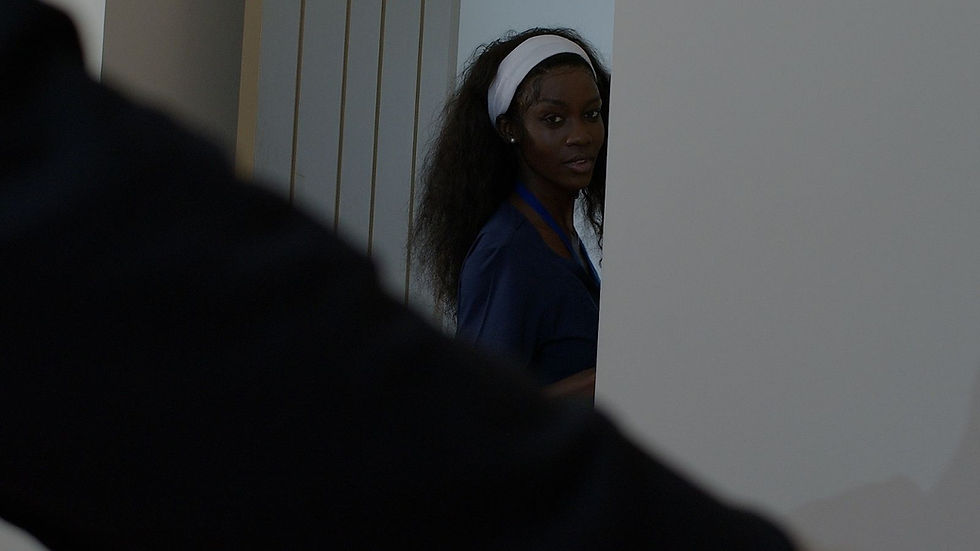'Yes Repeat No' Review: Three Actors, One Life, and a Thousand Fractures
- Nov 26, 2025
- 3 min read

By Romey Norton - November 26, 2025
Michael Moshe Dahan’s Yes Repeat No is not a film that asks for passive viewing; it demands your full intellectual and emotional presence from its opening minutes. Built around the life, legacy, and contradictions of Juliano Mer-Khamis, an actor, activist, provocateur, and self-described embodiment of the Palestine–Israel conflict, this drama is staged with conceptual boldness. Its ambition never overshadows its humanity. Instead, the film becomes an unsettling, arresting chamber piece about the fractures within identity, performance, and memory. Juliano Mer-Khamis was assassinated in 2011, on the steps of the theatre he founded (quoted within the first minute of the film, which is a powerful reminder that we’re still fighting for freedom of speech, art, and the right to express ourselves).
Three actors audition to play Mer-Khamis, each embodying a different facet of a man who was “100% Palestinian and 100% Jewish.” What begins as a rehearsal quickly dissolves into something more volatile. Dahan turns the audition room into a crucible, where every line delivered, gesture repeated, or memory invoked pushes the actors deeper into the contradictions that Mer-Khamis carried as a birthright.
Mousa Kraish (as the “Arab Juliano”), Adam Meir (as the “Public Juliano”), and Karim Saleh (as the “Israeli Juliano”) give performances that feel both theatrical and raw, a tension that suits the film’s meta-cinematic structure. They are not simply portraying a man with overlapping identities; they are navigating how those identities were perceived, flattened, or weaponised by everyone around him. There are times the film feels like a documentary - the acting is so natural. Salome Azizi, playing “The Director,” serves as both conductor and provocateur. Her presence is measured but forceful, guiding the actors into emotional terrain that is equal parts re-enactment and excavation. The film’s best scenes are those in which Azizi’s director interrogates not only the actors’ interpretations of Mer-Khamis but their assumptions about identity itself. Forcing you to consider how labels, histories, and inherited narratives shape the stories we tell and the ones we refuse to confront.
I’m not always a fan of flitting between black and white to colour, but in this case, it feels effortless, and rather than distracting the audience or disrupting the pace. I very much enjoyed the colour being stripped from the rehearsals. It really makes you focus on the words that are being said. The script, whilst political, isn’t hard to understand or follow. It’s very informative and allows audiences to think about their political views. There's even some subtle humour in there, "for once the arab doesn't play the terrorist" is an example of sections that might make you smirk - and that's okay.

Stylistically, Yes Repeat No carries the sparse, intimate energy of a stage rehearsal, a product of its pandemic-era production constraints but also a strength. The confined setting intensifies every confrontation. There's some great pans around the actors, and even looking down upon them, which theatre audiences wouldn't ever get to see. They really use every section of this setting, which is very impressive.
The ending is poignant, thought-provoking and will send shivers down your spine. Yes Repeat No is not a comforting film, but it is an essential one. It’s a bracing, unflinching interrogation of identity and conflict, delivered with creative courage and emotional intelligence. It opens for the possibility of a future in which stories like Mer-Khamis’s can be understood rather than weaponised.
'Yes Repeat No' is available now on US digital platforms.

Want more film reviews? Check out more content on our website Film Focus Online!




